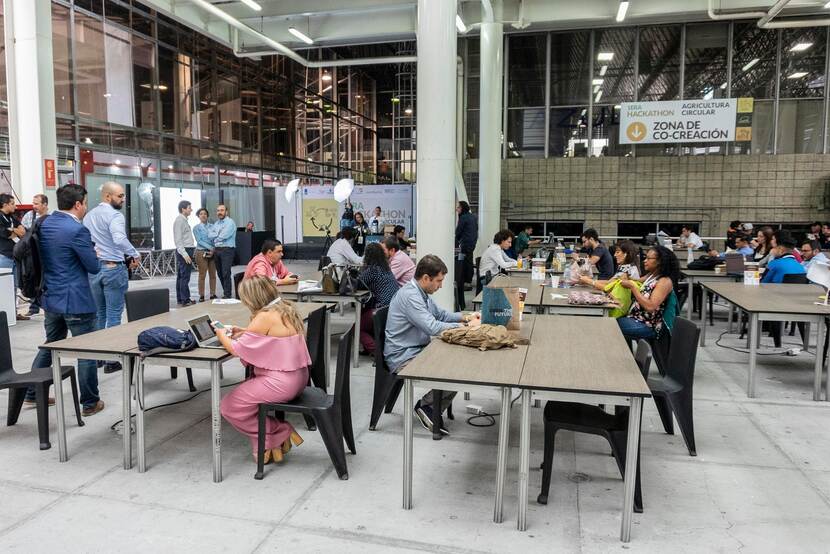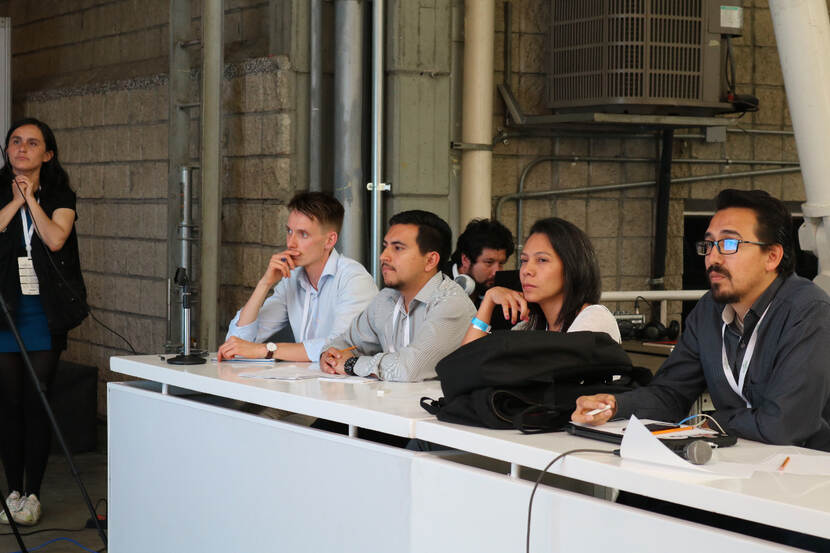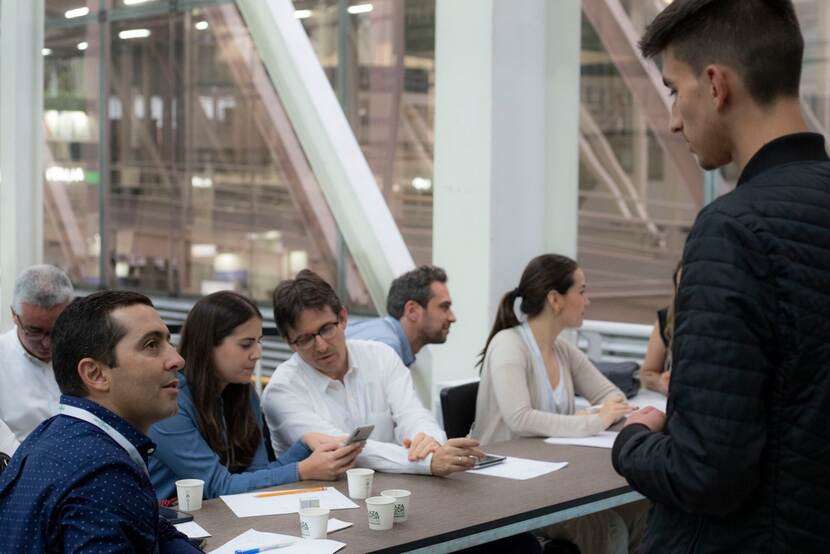Thinking together about today's challenges for tomorrow's world; the first hackathon on circular agriculture in Colombia
Creation and innovation are the basis of a hackathon; an event to denote collective workspaces where groups of people with multidisciplinary backgrounds come together to come up with solutions around a specific theme. During the Expo Agrofuturo 2019 in Medellin, LAN Colombia in cooperation with its partners organized a hackathon around the theme of circular agriculture.

Colombia, with all its resources, is an important producer of agricultural products. The agricultural sector offers many people, who are most often smallholders, an income. Since more than 90% of the agricultural producers do not have access to any technical assistance and 85% is without any mechanization, the agricultural sector has an impressive potential.
Nevertheless, as in many other parts of the world, in Colombia agriculture also poses social-economic and environmental challenges. Agricultural production systems and consumption patterns in the country have a negative impact on natural resources and on the environment, which results among others in loss of biodiversity, water scarcity, soil degradation, plastic pollution and food waste. Besides, farmers have often difficulties to earn a decent income.
The circular agriculture policy of the Ministry of Agriculture, Nature and Food Quality launched last year by Minister Mrs. Carola Schouten offers an answer to these challenges. The policy maps out the road in the near and distant future for a transition in agriculture from continuously increasing production and cutting costs towards agricultural production with as low as possible pressure on the environment and natural resources by closing agricultural production cycles. To realize this ambition, the Netherlands not only works within its own borders, but also aims and needs to cooperate with other countries, especially countries of origin on which the Netherlands is dependent for its imports.

The first Colombian hackathon on circular agriculture is a concrete follow up to realize the Minister’s ambition in a country of origin. Besides, the agricultural sector in Colombia has a great potential for innovation and the agrotech and foodtech entrepreneurship community is continuously growing. Circular agriculture combined with technology and innovation can create a true revolution in the Colombian countryside. For this reason the hackathon appeared to be an ideal space to combine them all.
The hackathon took place the 18th and 19th of September. During these two days six groups gathered and competed to find solutions to the challenges that agriculture is currently facing in Colombia. To make the hackathon possible, LAN Colombia partnered with important stakeholders such as Agrilink, Grupo Bios, Ruta N, Comfama, Partners 4 startups, Universidad Pontificia Bolivariana, the Mayor's Office of Medellin, Oracle and Holland House.
Even though the agricultural and rural contexts of Colombia and the Netherlands are quite different, the challenges were focused on the topics of the policy that can be tackled in Colombia, for instance, closing the cycles of production, reduction and / or reuse of production residues, increasing productivity and adding value to food waste. The main objective was to find new solutions for farmers and agribusinesses in harmony with the environment that could be applied at local, regional or country level.

After a jury deliberation composed by representatives of each one of the partnered companies; the winning team was ¨Jaguar Ecosystem¨, a group of people working on the increase of productivity and quality of small producers creating high-impact business cases. Jaguars’ winning ¨Inseco¨ initiative which they pitched during the hackathon proposes the production of flour and fertilizers made of insects fed with organic waste. The model consists of three key points: reducing the use of imported protein bases, reducing food waste and improving management of organic waste.
Having an economic alternative for protein production creates a great impact in reducing costs for farmers with animal production who would have a product with the same or higher protein content. It should be noted that there is currently no supply of this kind of products in Colombia, therefore it is a very innovative proposal that is in line with the vision of circular agriculture.

The winning team has been awarded with a study trip to the Netherlands for a week where the team members will have the opportunity to get to know first-hand practical examples of the experiences and views of different actors from the public and private sector and knowledge centers around the theme of circular agriculture in order to develop ideas. Project partner Ruta N will accompany them with incubatory.
Authors: Luisa Murillo & Lucas du Pré